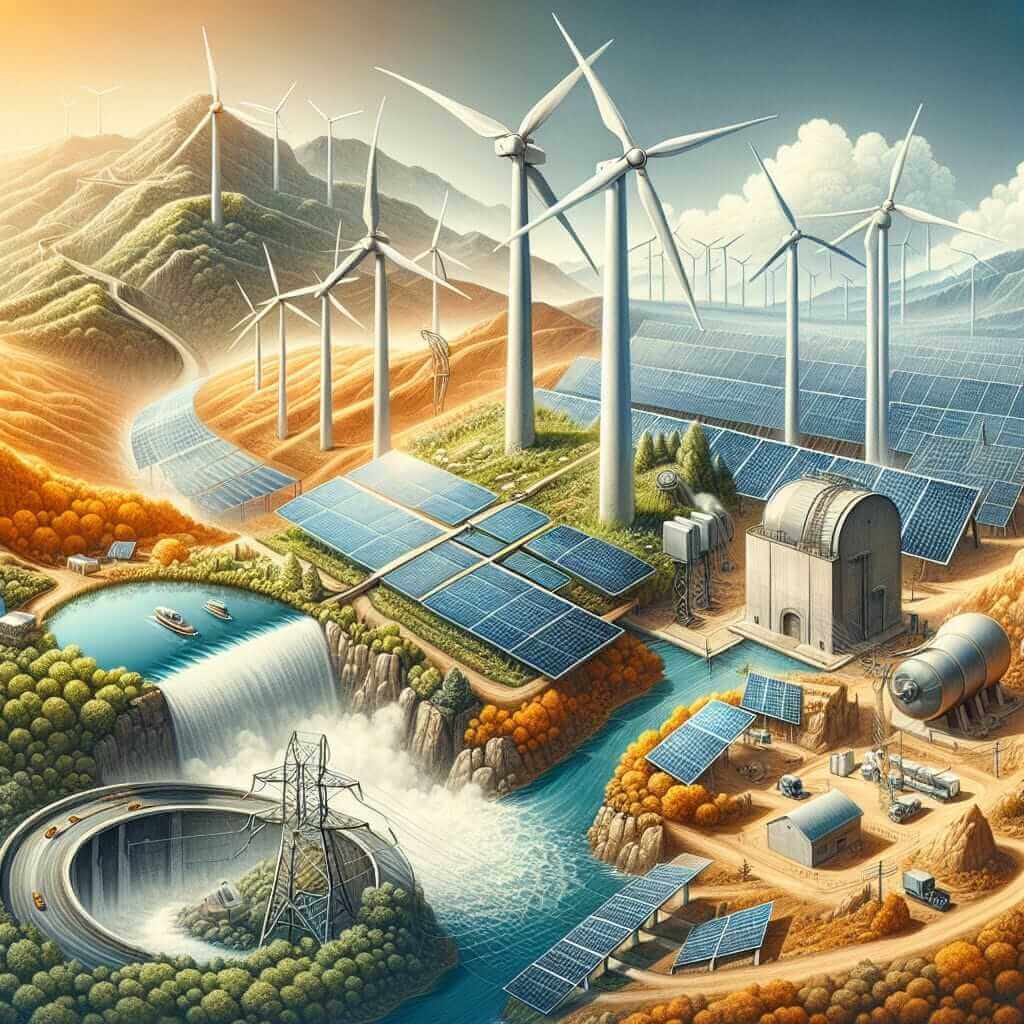The IELTS Reading section is designed to test your ability to understand and process written English in an academic context. One commonly featured topic is renewable energy and its socio-economic impacts, particularly concerning job creation. Given the increasing focus on sustainable development and green technologies, the relevance of this topic in the IELTS Reading section is undeniable. Historically, topics on renewable energy have appeared frequently in IELTS exams, and with the global shift towards sustainable practices, it’s likely to recur.
Practice Reading Passage: Renewable Energy and Job Creation
Passage
Renewable Energy Adoption and its Impact on Employment
In recent years, the transition to renewable energy sources has sparked significant discussions among policymakers, environmentalists, and the general public. One key area of interest is the impact of renewable energy adoption on job creation. Traditional energy sectors such as coal, oil, and natural gas have historically provided numerous employment opportunities. However, concerns about climate change and environmental degradation have necessitated a shift towards cleaner energy options. This transition is not only environmentally beneficial but also significantly influences the job market.
Renewable energy sectors, including solar, wind, and hydroelectric power, have shown a promising potential for job creation. According to a report by the International Renewable Energy Agency (IRENA), the renewable energy sector employed over 11 million people globally by the end of 2018, and this number is expected to grow substantially. Solar photovoltaic (PV) technology alone accounted for approximately one-third of these jobs, demonstrating the sector’s robustness.

Moreover, job creation in renewable energy is not limited to direct employment. Indirect and induced employment generated in related sectors such as manufacturing, maintenance, and supply chains further amplifies the positive impact. For instance, the production of wind turbines and solar panels requires a significant workforce, contributing to job growth in industrial areas.
However, the shift to renewable energy also poses challenges. Workers in traditional energy sectors may face job displacement, necessitating comprehensive retraining and reskilling programs to transition smoothly into new roles. Governments and educational institutions play a crucial role in facilitating this transition by offering vocational training and educational initiatives focused on renewable energy technologies.
The economic benefits of renewable energy adoption extend beyond job creation. By reducing reliance on imported fossil fuels, countries can enhance energy security and stability while also fostering economic independence. Additionally, the decentralized nature of renewable energy allows for localized energy production, thereby promoting regional economic development and resilience.
In conclusion, while the transition to renewable energy presents certain challenges, its potential to generate employment and foster economic growth is undeniable. As the world continues to prioritize sustainability, the renewable energy sector is set to become a cornerstone of future job markets.
Questions
-
Multiple Choice
- What is one of the main arguments in favor of renewable energy adoption?
- A) It is cheaper than fossil fuels.
- B) It helps in job creation.
- C) It requires less space.
- D) It is not yet fully developed.
- What is one of the main arguments in favor of renewable energy adoption?
-
Identifying Information (True/False/Not Given)
- The renewable energy sector employed over 11 million people globally by the end of 2018.
- The transition to renewable energy does not create any challenges.
-
Matching Information
- Match each impact of renewable energy with the correct statement:
- Employment Growth: __
- Energy Security: __
- Local Economic Development: __
- Match each impact of renewable energy with the correct statement:
-
Sentence Completion
- The production of wind turbines and solar panels contributes to job growth in __.
-
Short-answer Questions
- How can governments facilitate the transition of workers from traditional energy sectors to renewable energy sectors?
Answers
-
Multiple Choice
- B) It helps in job creation.
-
Identifying Information (True/False/Not Given)
- True
- Not Given
-
Matching Information
- Employment Growth: Renewable energy sectors have shown a promising potential for job creation.
- Energy Security: By reducing reliance on imported fossil fuels, countries can enhance energy security.
- Local Economic Development: The decentralized nature of renewable energy promotes regional economic development.
-
Sentence Completion
- industrial areas.
-
Short-answer Questions
- By offering vocational training and educational initiatives focused on renewable energy technologies.
Common Mistakes to Avoid
- Misinterpreting Questions: Pay close attention to what the question is asking. For example, distinguishing between direct and indirect effects.
- Ignoring Keywords: Keywords help locate the correct portion of the text to find the answer. Don’t overlook them.
- Not Verifying Information: Always go back to the passage to verify if your answer is correct rather than relying on memory.
Vocabulary
- Adoption (n): [ədˈɑpʃən] – The action of taking on or embracing new practices or technologies. Example: The adoption of renewable energy is growing rapidly.
- Induced (adj): [ɪnˈduːst] – That has been brought about by something else. Example: Induced employment in related sectors amplifies the job market impact.
- Decentralized (adj): [ˌdiːˈsɛntrəˌlaɪzd] – Distributed away from a central location or authority. Example: Decentralized energy production enhances regional economic resilience.
Grammar Focus
Passive Voice
- Structure: Subject + to be (am/is/are/was/were) + past participle (V3)
- Example: The renewable energy sector employed over 11 million people globally.
Usage
- Passive voice is typically used to emphasize the action itself rather than who performs it, which is common in academic writing and reports.
Tips for High IELTS Reading Scores
- Practice Skimming and Scanning: Learn to quickly identify main ideas and key details.
- Time Management: Allocate time wisely to ensure you can attempt all questions.
- Familiarize with Different Question Types: Each type has specific strategies, so practice as many different types as possible.
Renewable energy and its implications on job creation is a highly relevant and recurring topic in the IELTS Reading section. Understanding the structure, developing a relevant vocabulary, and practicing with various question types will significantly boost your chances of achieving a high score.